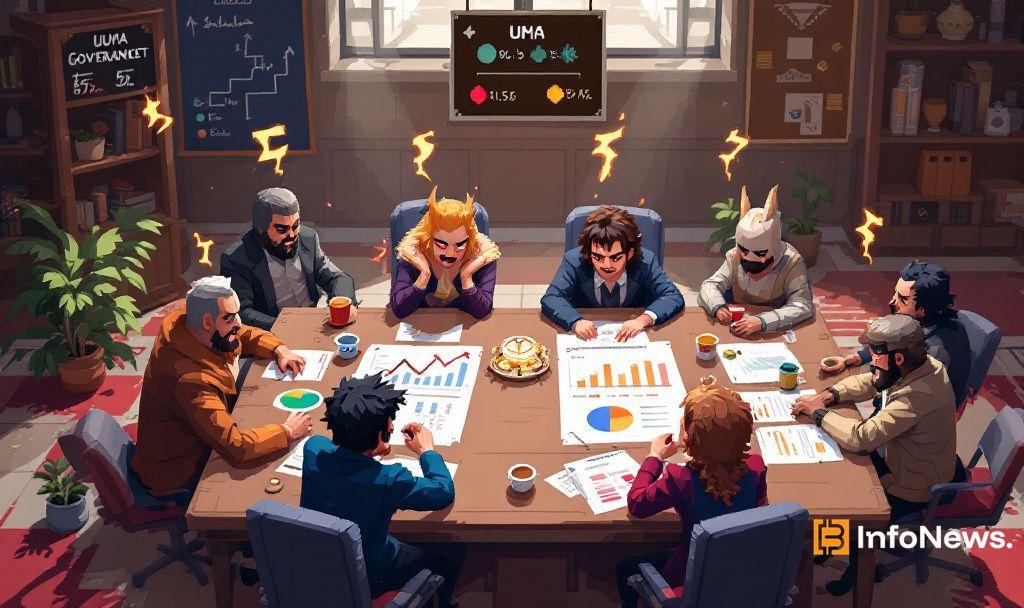Governance Attack at Polymarket Alters Vote Outcomes
- A manipulation of governance votes at Polymarket, led by UMA tycoon.
- Vote manipulation resulted in substantial profit.
- Event highlights vulnerabilities in DeFi governance models.

On March 25, 2025, Polymarket confronted a governance manipulation incident leading to altered voting outcomes, initiated by an influential figure from UMA.
The incident underscores potential vulnerabilities in decentralized finance governance, leading to immediate discussions on fortifying existing structures.
UMA Tycoon’s Influence Alters Polymarket Governance Votes
A governance attack at Polymarket’s platform altered voting outcomes significantly. This incident was orchestrated by a tycoon associated with UMA, leveraging their influence on voting structures. This controversial move has resulted in notable changes in community trust and the perception of governance security.
Community Confidence Wanes Amid Governance Concerns
The attack has led to a drop in community confidence, as stakeholders express concerns over governance vulnerabilities in decentralized platforms. Discussions on strengthening security measures are gaining momentum.
“Research is underway to develop an oracle that can support multiple tokens for dispute resolution and to implement dynamic bonding for enhanced security against bribery attacks.” – Community Developers, UMA, Polymarket, and EigenLayer, Source
UMA (Universal Market Access) currently trades at $1.42, with a market cap of $121.98 million, representing 0.0042% market dominance. It experienced a 24-hour trading volume of approximately $17.97 million, changing -3.37%. Notably, prices changed by 2.59% in 24 hours, 9.19% over the past week. (Data: CoinMarketCap)
Past Voting Manipulations in DeFi Highlight Risks
This attack mirrors past incidents where voting manipulation occurred in decentralized platforms. Previous experiences emphasize the need for enhanced security and transparent mechanisms. Experts suggest that without significant reforms, similar incidents may recur, threatening the reliability of decentralized voting processes and potentially affecting market stabilizations.



